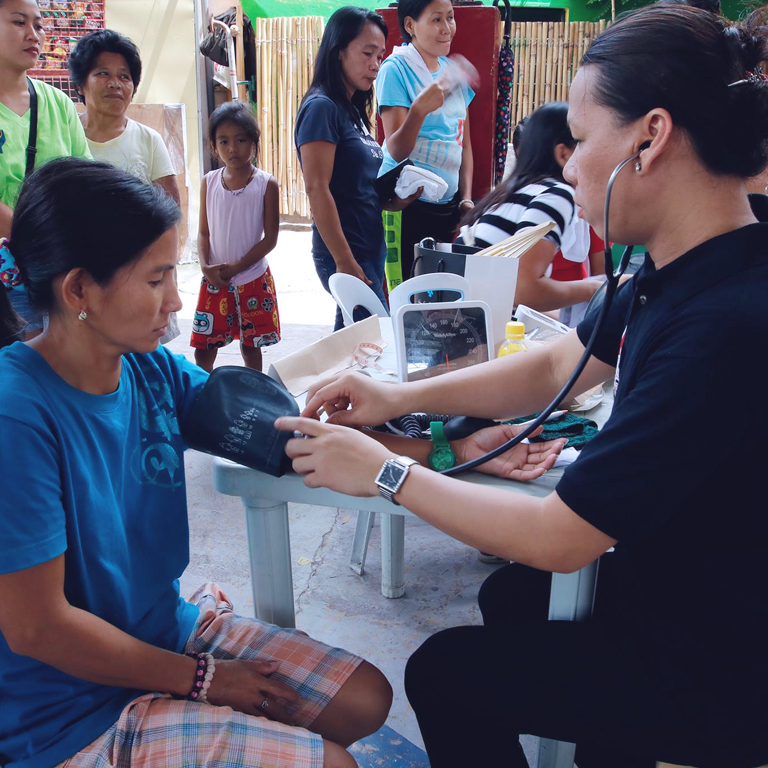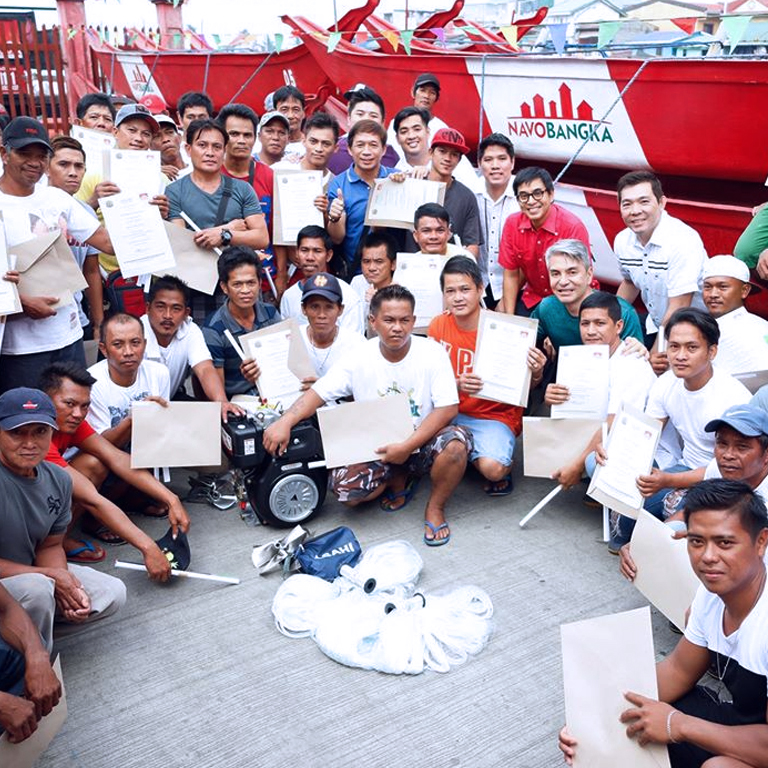Legislative Plans
I. BARANGAY HEALTH WORKERS
Grant due recognition to Barangay Health Workers, and their invaluable service to the
health and well-being of Filipinos, and encourage more people to serve in the public health sector.
What they do: Primary care services provided by BHWs include, among others, maternal, newborn and child health. They also provide information and education on maternal
and child health, rights of children, family planning and nutrition. They also act as midwives and assist in birthing activities and services, and work with at least twenty families, more so in remote and rural areas.
Presently: Under RA 7883, the law provides them with hazard allowance, subsistence allowance, training and education, civil service eligibility after 5 continuous years of service.
Proposal: Given the services that they render, it should be a measure of social justice to provide BHWs with an opportunity to prosper and improved quality of life by giving them the following:
- Entry pay level of a BHW shall be the prevailing rate equivalent to Salary Grade One (SG 1)
- Free training and continuing education
- Security of tenure
- Pay BHWS salaries and wages, in the same manner as all public health workers
- In addition to their existing hazard and subsistence allowances, give longevity pay, laundry allowance, remote assignment allowance
- Free training and education
- Free legal representation and consultation services for BHWs
- Preferential access to loans
- Medical examination and Compensation for injuries
- Leave benefits
- Retirement pay
At the very least, extend the coverage of the Magna Carta for Public Health workers to BHWs.

II. TEACHER’S SALARY AND INCENTIVE
To improve the quality of education in the Philippines by ensuring that the public school teaching profession attracts the most competent and dedicated people.
Presently:
An entry level teacher receives Salary Grade 11. Even with the implementation of the 4th Tranche of Salary Standardization Law, with the rising inflation, the cost of goods, the volume of work performed by teachers whose work entails not just teaching, but who are burdened with non-teaching and administrative work.
Proposal: It should be a measure of social justice to boost the welfare of our teachers:
COVERAGE:
- Public school teachers
- Non-Teaching Personnel
BENEFITS:
- Increase the entry level Salary Grade of Public School teachers from 11 to 15
(Php 20,754 – Php 30,531) Based on the salary Standardization law of 2015
(4th Tranche) provided, that for public school teachers in the PSHS, the Board of Trustees of the PSHS shall determine the adjustment of the minimum salary, but in
no case shall it be lower than the minimum herein prescribed; provided further, that
the salaries of those occupying higher positions or rank shall be adjusted accordingly. - Minimum salary for all non-teaching personnel in public basic education shall be the equivalent of SG 10; provided, that the salaries of those occupying higher positions or rank shall be adjusted accordingly.
- Benefits and Incentives
- An augmentation pay of PhP 5,000.00 per month, which shall be considered as part of the basic salary for purposes of computing bonuses and retirement pays.
- Medical allowance in the amount of PhP 10,000 per year.
- Free tuition and registration fees in relevant graduate courses or continuing education programs in all state colleges and universities, subject to such guidelines that the DepEd and the Department of Science and Technology (DOST) shall prescribe.

III. LIVELIHOOD OF FISHERFOLK
To uplift the lives of fisherfolk while ensuring public safety and shoreline protection.
Presently: The Fisheries Code, enacted in 1998, directed the establishment and creation
of fisherfolk villages, where certain areas of the public domain shall be reserved for the municipal fisherfolk.
Proposal: Amend Section 108 of the Revised Fisheries Code in order to strengthen the establishment and creation of the Fisherfolk Villages across the country and reconcile conflicts of jurisdiction among various government agencies that hampen the establishment, and to provide funds therefor.

IV. MASS TRANSIT
To make Navotas more accessible to the people.
Presently: Since Navotas City is one of the most densely populated in Metro Manila, the fact that there continues to be no mass transport system traversing the City grossly exacerbates the vehicular traffic problem in Navotas City and its neighboring jurisdictions
Proposal: Extension of Railway. There shall be established an extension of the Manila Light Railway Transit (LRT) System Line 1 from Monumento, Caloocan to Navotas City in accordance with Executive Order No. 603.

V. MODERNIZATION OF NAVOTAS FISH PORT COMPLEX
To improve its facilities and services, and continually meet the requirements of the Philippine fishing industry.
Presently: The Navotas Fish Port Complex, the largest in Southeast Asia, is the premier fish center of the Philippines. After over 40 years since its inauguration in 1976, nevertheless, its facilities now truly require rehabilitation and upgrading.
This measure mandates the much-needed improvement, rehabilitation, modernization of the Navotas Fish Port Complex. The measure is aimed at improving the capacity and the services of the First Port in order to meet requirements of the Philippine fishing industry, thereby continually benefitting the economy and the people, and promoting the security and stability of our domestic food supply.
Proposal: The improvement, rehabilitation, and modernization of the Navotas Fish Port Complex shall be fully completed within five (5) years.
